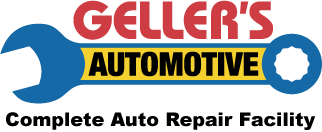 When I mention the words “exhaust system” do you think of only your tailpipe and muffler? The exhaust system is actually an intricate system of chambers and pipes responsible for protecting you, your passengers and the environment from exposure to harmful gases. In this blog article, I’ll talk about what the exhaust system does, the signs that indicate you need exhaust system repair and how to maintain this important system.
When I mention the words “exhaust system” do you think of only your tailpipe and muffler? The exhaust system is actually an intricate system of chambers and pipes responsible for protecting you, your passengers and the environment from exposure to harmful gases. In this blog article, I’ll talk about what the exhaust system does, the signs that indicate you need exhaust system repair and how to maintain this important system.
The primary function of the exhaust system is to take the gases that are generated from the air/fuel combustion process and turn it into gases that are less toxic. This protects you, your passengers and the environment. If your exhaust system isn’t operating properly, you are at risk of exposure to dangerous gases like carbon monoxide. With extended exposure, you may experience symptoms like brain fatigue, aches, lightheadedness, flu-like symptoms, queasiness, and even fall unconscious.
What are the Main Components of Your Exhaust System?
Your vehicle’s exhaust system is made up of 5 main parts, each one working together to make sure you’re safe and your car is operating properly. Here they are:
- Exhaust Manifold – The exhaust manifold is connected to the engine at the cylinder head. As gases are produced during combustion, the exhaust manifold collects those gases and delivers them to the exhaust pipe.
- Oxygen Sensor – For your vehicle to operate efficiently, the onboard computer is continually taking measurements from different sensors. The oxygen sensor lets the computer know how much oxygen is in the exhaust so the computer can adjust the ratio of fuel to air.
- Exhaust Pipes – These are the pipes that start at the front of the engine and carry the gases through the entire exhaust system.
- Catalytic Converter – This part “converts” the carbon monoxide and other harmful gases produced during combustion into water vapor and gases that are less harmful.
- Muffler – Every time the spark plugs ignite the air/fuel mixture, an explosion occurs. The muffler’s job is to “silence” the loud noises generated during the combustion process.
The “Check Engine Light” and Your Vehicle’s Exhaust System
In a previous blog post, I talked about how the Check Engine and Service Engine Soon lights are there to alert you to minor problems before they became major repair issues (click here to see the blog post “What should you do when the Check Engine light comes on?”). These dashboard lights will come on when there is a problem with the emissions in your vehicle. Your exhaust system is a major part of the emissions control system. If this light turns on, you should have the problem diagnosed and fixed right away. Delaying repairs can lead to additional strain on the engine and its components, which can cause some parts, like the catalytic converter, to fail
How Do I Know if I Need Exhaust System Repair?
Here are several ways you will know if you need an exhaust system repair:
- You Smell Exhaust Fumes – If you’re smelling the fumes from your own vehicle while you’re driving, there’s a problem with a leak in the exhaust system that needs to be repaired right away.
- Loud Rumbling, Hissing or Popping Noises – One day your car is riding fairly quietly and the next you begin to hear loud rumbling, hissing or popping noises coming from the underside of your vehicle. Most likely you need to have the muffler replaced.
- Your Vehicle is Burning More Fuel – This could mean the oxygen sensor needs to be replaced.
How Can I Maintain the Exhaust System?
The biggest enemy to your vehicle’s exhaust system is road salt. These salts will cause metal parts on your vehicle to rust and corrode. Inspect the exhaust system on a regular basis and take care of minor issues before they end up being a more costly exhaust system repair. It’s also a good idea to wash the underbody of your vehicle every few weeks during the winter months.
The certified technicians at Geller’s Automotive in Byram, New Jersey, can also help you maintain the exhaust system on your vehicle. When you bring your car, van or truck in for periodic service, we complete a 27-point courtesy inspection. If we see a problem with the exhaust system, we’ll let you know so you can take care of it. Call us at 973-347-1700 to make an appointment or click here to schedule on-line now.



